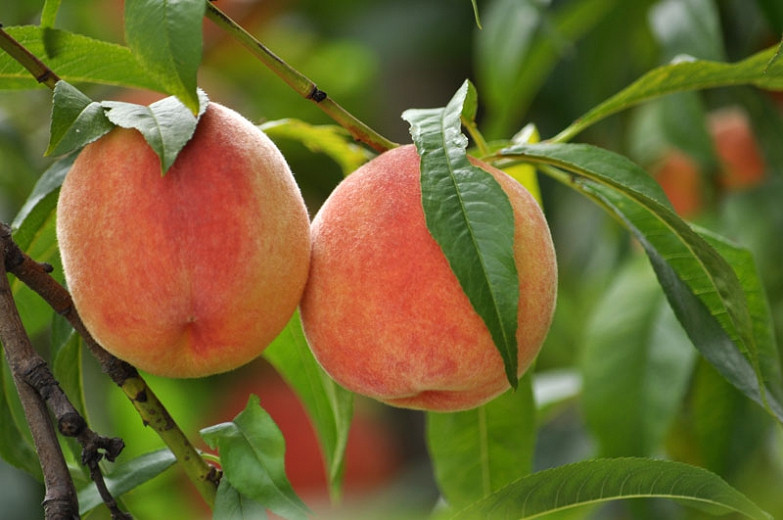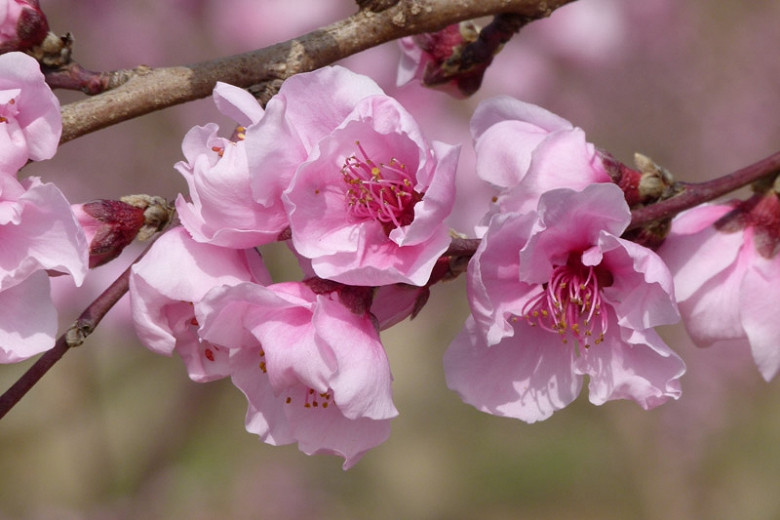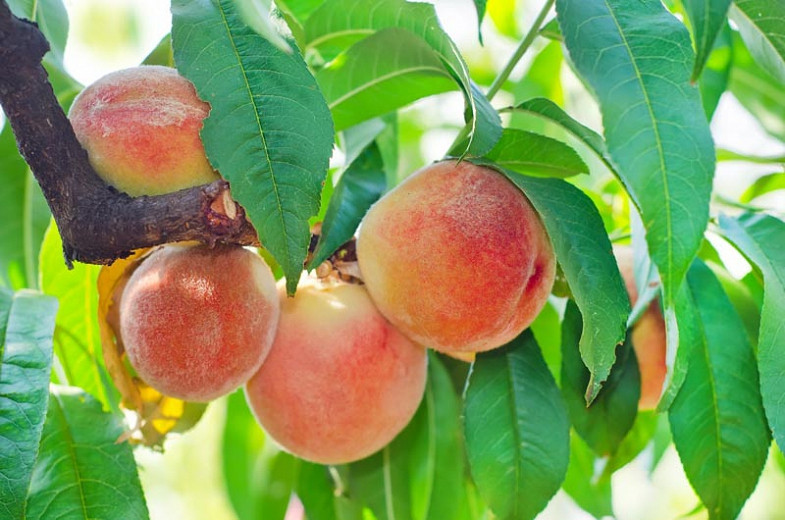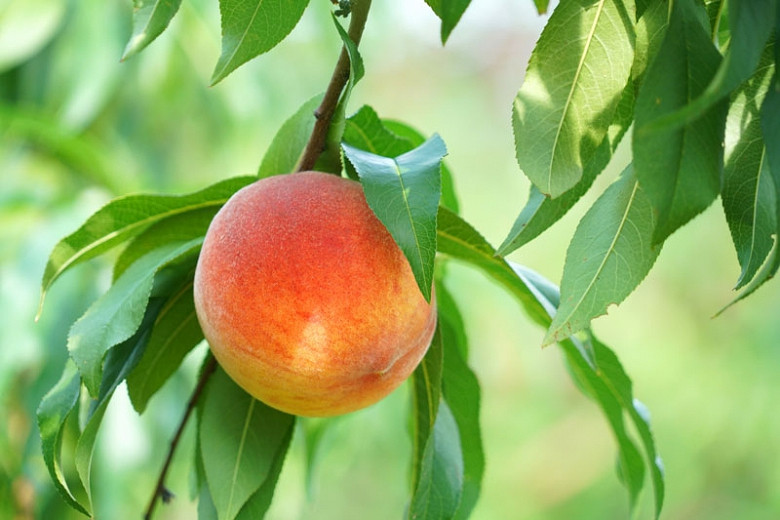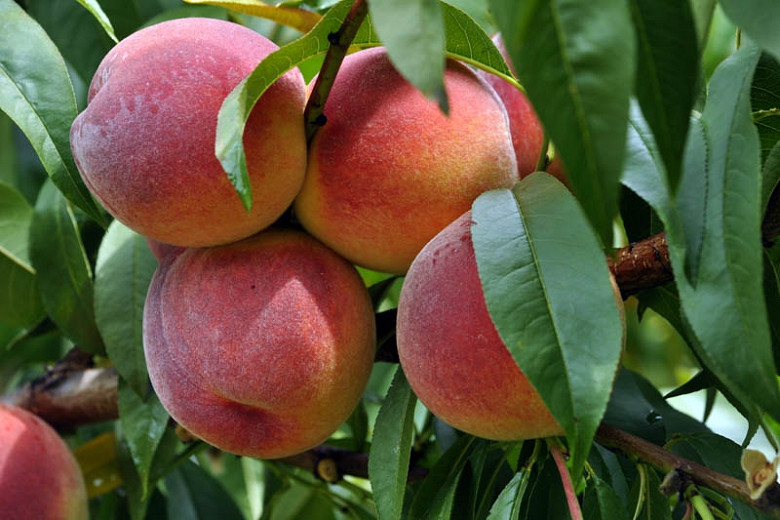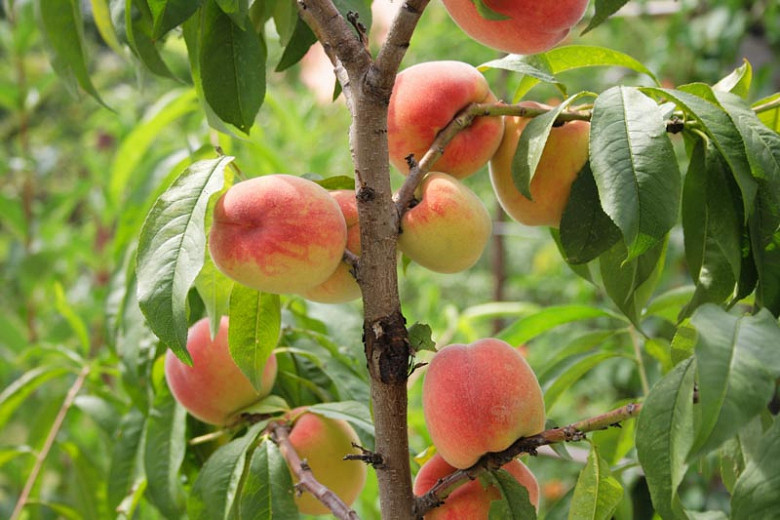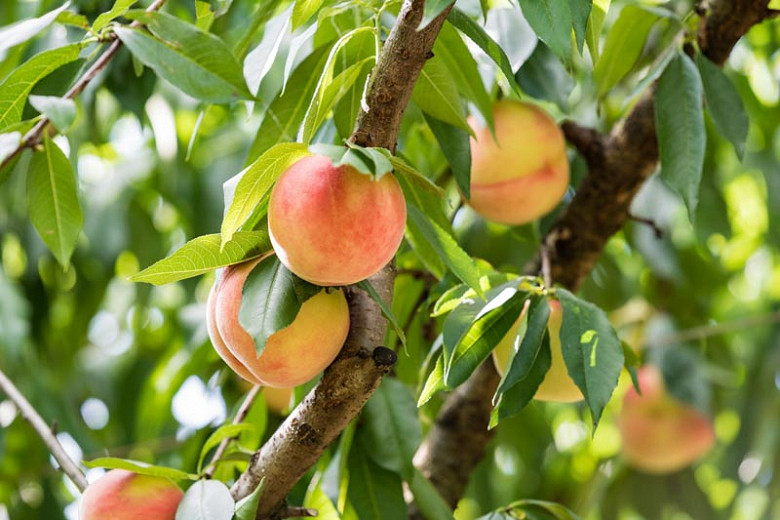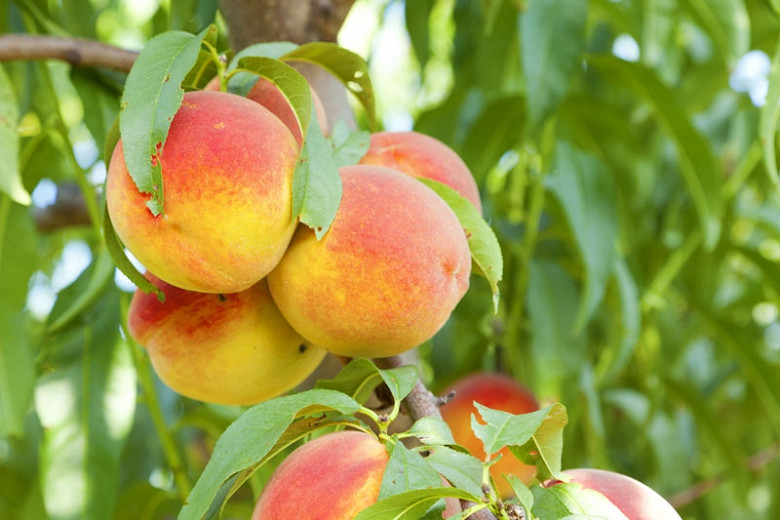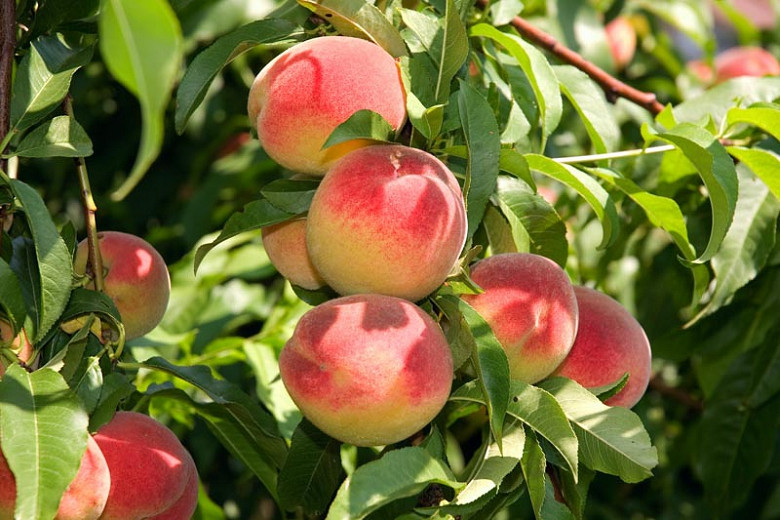Prunus persica Contender (Peach)
Noted for its cold-hardiness, Prunus persica ‘Contender’ is a wonderful peach tree adorned with profuse, fragrant, pink blossoms in early-mid spring. They are followed by a heavy crop of medium-sized, freestone, red-blushed yellow fruits in late summer. The bright yellow flesh is firm, sweet, and juicy. Perfect for eating, baking, and canning. Self-pollinating, this peach tree forms a rounded crown with upwardly-reaching branches clothed in lanceolate, dark green, deciduous leaves. The foliage provides a deep yellow fall display.
Noted for its cold-hardiness, Prunus persica 'Contender' is a wonderful peach tree adorned with profuse, fragrant, pink blossoms in early-mid spring. They are followed by a heavy crop of medium-sized, freestone, red-blushed yellow fruits in late summer. The bright yellow flesh is firm, sweet, and juicy. Perfect for eating, baking, and canning. Self-pollinating, this peach tree forms a rounded crown with upwardly-reaching branches clothed in lanceolate, dark green, deciduous leaves. The foliage provides a deep yellow fall display.
- Grows up to 12-15 ft. tall and wide (360-450 cm).
- Performs best in full sun in moist, slightly acidic to neutral, well-drained soils. Peaches and nectarines take well to espalier and can be nicely fan-trained against a wall.
- This peach tree has a chill hours requirement of 1050 (hours of temperatures below 45ºF (7ºC) in the winter for their buds to open in the spring)
- Peach and nectarine trees require annual pruning to remain strong, and healthy and produce bountiful harvests. Such regular pruning will also keep the tree at a workable height, for harvesting, pruning, and pest control. Unpruned peach trees will soon stop producing.
- Watch for aphids, scales, or squirrels. Protect peaches against peach leaf curl, by covering the plant from fall to spring. Bacterial canker, silver leaf, brown rot and replant diseases may cause problems.
- Peaches are propagated by grafting onto rootstocks for fruit or can be propagated by seed, although the fruit from the seedlings is likely to be inferior in flavor to the parent. Seed-raised trees take four to five years to bear fruit.
- Toxic to dogs, toxic to cats, toxic to horses.
Requirements
| Hardiness | 4 – 8 |
|---|---|
| Heat Zones | 1 – 8 |
| Climate Zones | 3, 3A, 3B, 4, 5, 6, 7, 8, 9, 10, 11, 12, 13, 14, 15, 16, 17, 18, 19, 20, 21, 22, 23, 24 |
| Plant Type | Fruit, Trees |
| Plant Family | Prunus – Fruit Trees, Peaches |
| Exposure | Full Sun |
| Season of Interest | Spring (Early,Mid)Summer (Late)Fall |
| Height | 12' – 15' (3.6m – 4.5m) |
| Spread | 12' – 15' (3.6m – 4.5m) |
| Water Needs | Average |
| Maintenance | High |
| Soil Type | Chalk, Loam, Sand |
| Soil pH | Acid, Alkaline, Neutral |
| Soil Drainage | Moist but Well-Drained |
| Characteristics | Fragrant, Showy, Fruit & Berries |
| Attracts | Birds |
